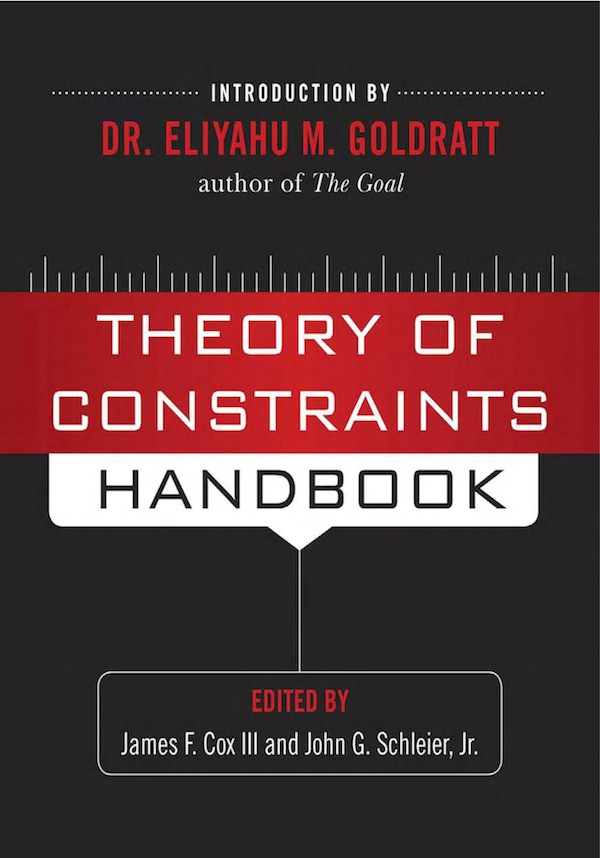Traditional Measures in Finance and Accounting, Problems, Literature Review, and TOC Measures (Chapter 13 of the Theory of Constraints Handbook)
Charlene Spoede BuddInfo
Level of TOC knowledge acquired:
Introductory and IntermediateDesigned for:
Business owners, Consultants, Implementers and LeadersTopics:
Finance and MeasurementsApplication:
Throughput AccountingLanguage:
EnglishFormat:
DownloadShare
Recommend
This chapter is a basic introduction to Throughput Accounting (TA). To provide historical perspective, the chapter provides a brief review of both the business environment and the development of cost accounting methodologies.
Accounting personnel usually are among the last people to be educated in Theory of Constraints (TOC) concepts. We constantly are amazed at the reported successful TOC implementations that have not educated accounting and finance people at all. Yet operations people expect that they can overcome resistance to their improvement plans.
One very successful TOC implementation champion, strongly supported by the CEO, lamented that he could not understand why the accounting department had hired additional personnel to track the cost of each individual operation when he had established a seamless flow line. The accountants were doing what they had been taught to do. Without an understanding of TOC concepts, when they had sufficient information, they would begin questioning the cost of certain operations, reporting local efficiencies, and providing other misleading information such as unit costs.
This chapter aims to develop an appreciation of accounting and finance personnel—what they can do for you and what they can do against you—and provide a strong argument for educating accounting and finance personnel along with those in operations. TOC initiatives need collaborative partners rather than colleagues who constantly construct a maze of barriers. For accountants who have a suspicion that traditional accounting methodologies produce internal data containing weaknesses for decision makers, this chapter will point out where the weaknesses exist. To accomplish this ambitious goal, the chapter will:
• Briefly describe the history of traditional cost accounting and explain why it no longer provides the information needed to support the improvement initiatives made possible by TOC.
• Survey, classify, and describe the limitations of the profession’s various accepted (published) solutions to replace traditional internal measurement systems.
• Discuss the breadth of TA and its impact on all TOC initiatives through a continuing case study.
• Identify the need for future research in accounting and finance to support TOC concepts, including the development of relevant performance evaluation systems.
The final section of the chapter will introduce the remaining chapters in the Performance Measures section of the TOC Handbook (Chapters 13, 14, 15 and 16).
Content:
- Traditional Cost Accounting and Business Environment
- Accounting’s Response to a 20th Century Changing Environment
- TOC Approach to Planning, Control, and Sensitivity Analysis
- Possible Explanations for the Lack of TOC Literature in Accounting and Finance
- Future TOC Accounting/Finance Research Needs
Comprehensive coverage of the Theory of Constraints
Complete Table of contents of the Theory of Constraints Handbook
- I: What is TOC?
- II: Critical Chain Project Management
- III: DBR, Buffer Management, and Distribution
- IV: Performance Measures
- V: Strategy, Marketing, and Sales
- VI: Thinking Processes
- VII: TOC in Services
- VIII: TOC in Complex Environments
- Theory of Constraints in Complex Organizations
- Applications of Strategy and Tactics Trees in Organizations
- Complex Environments
- Combining Lean, Six Sigma, and the Theory of Constraints to Achieve Breakthrough Performance
- Using TOC in Complex Systems
- Theory of Constraints for Personal Productivity/Dilemmas
- IX: Summary
About the Authors:
James F. Cox III, Ph.D, CFPIM, CIRM, holds TOCICO certifications in all disciplines. He is a Jonah's Jonah, Professor Emeritus, and was the Robert O. Arnold Professor of Business in the Terry College of Business at the University of Georgia. Dr. Cox has written three books on TOC.
John Schleier holds TOCICO certifications in all disciplines. He was President and Chief Operating Officer of the Mortgage Services Division of Alltel, Inc., Executive Vice President of Computer Power, Inc., and Director of Office Systems and Data Delivery for IBM.







































